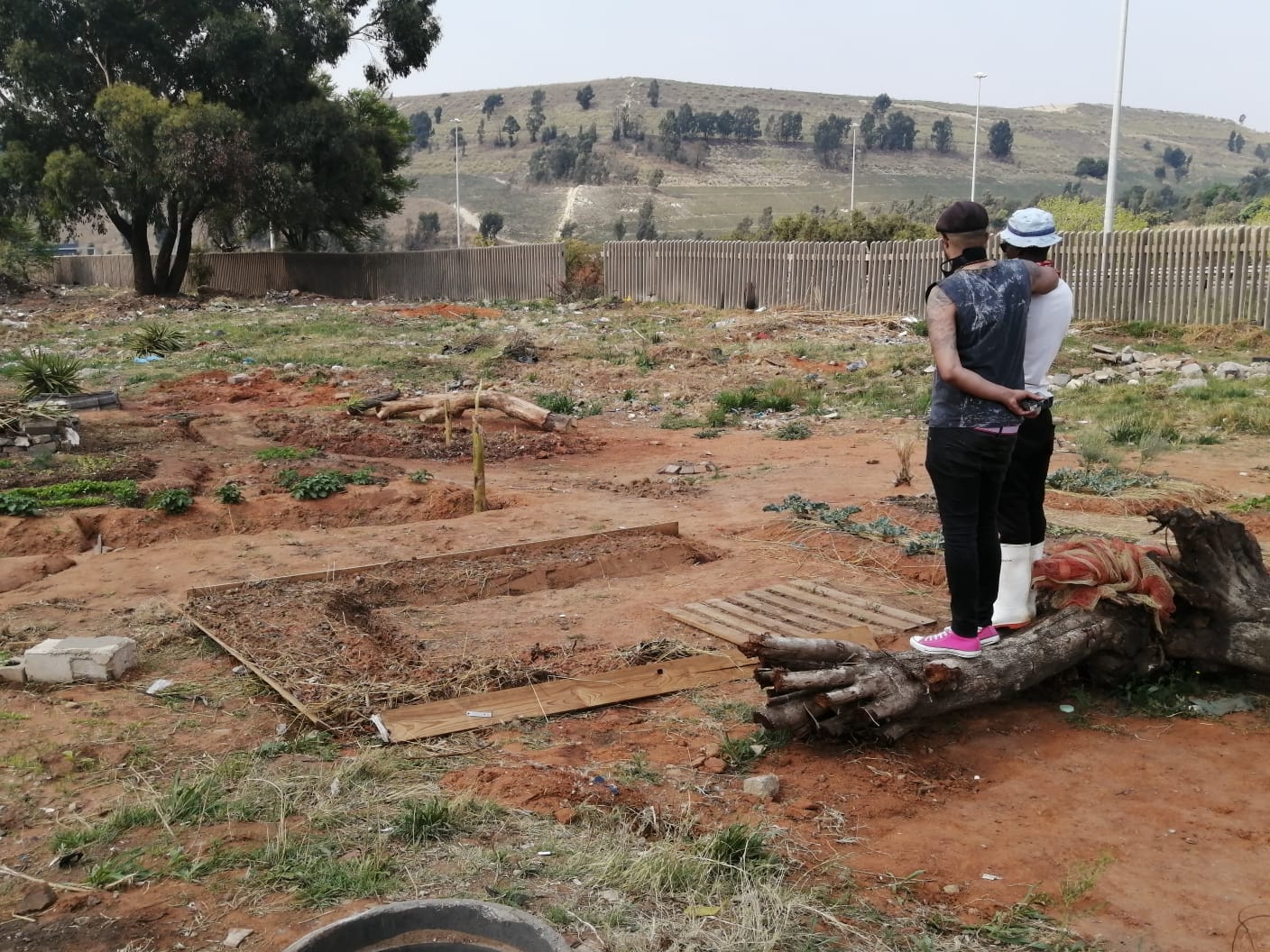The Restauranteur Turned Urban Farmer Brings Hope
“I must say the journey was very healing. I got to interact with people who normally came to scratch through the dump for food, some even to feed their families."
We have a special article written by own of our team - Lerato Ngakane in South Africa. We wanted to share this story in between newsletters.
When the announcement for the lockdown measures in South Africa were introduced, a large part of the population was left to fall through the gaps of disparity that were already too big in our society. The distancing measures deployed by South Africa imposed large economic costs and would have negative implications for the factor distribution of income. It was almost impossible to imagine social distancing when in some households, 7 people live in a 2 room house and there is one breadwinner who earns from being a builder on a construction site.
Nkululeko Mabe, a manager at a restaurant, was one of those who would be affected by the lockdown measures.
“When the 1st lockdown was announced, I realised we have more than just the Covid as pandemic; however hunger (nutrition) as well. At that time I had already started with my vegetable garden at home. After seeing how much food grew and money saved, I then decided let me try to do something to help the less fortunate. Food security and literacy was needed and I had the skill and knowledge so I started a movement called G.A.L.G Grow And Let Grow, with the support of Kirby Wentzel, who’s been a great support for me. With this movement I am hoping to see people grow themselves from growing food,” he said.
In most townships in South Africa, there is the heavy burden of consumption and a lack of service delivery, so most open spaces end up being used as dumping sites.
He identified an illegal dumping site which he cleaned up to prepare for planting food.
“I must say the journey was very healing. I got to interact with people who normally came to scratch through the dump for food, some even to feed their families. In my mind I knew very well that the R350 relief grant wouldn't be sufficient and I managed to get some of the community members to assist with cleaning up. Some community members didn't show concern as they were too dependent on the government for something that we could've started as a community to express the level of seriousness.”
The government, after numerous attempts to get them to assist was to no avail. It was only once that a TLB and tracks were sent to help with the clean up, but that didn’t even help that much and they still haven't returned to finish the job.
“I managed to keep the Edible Healing Forest alive with water from one of the neighbours who was willing to allow me use their water supply as they were directly affected by the dumping. They had rats all over.”
He grew a variety of crop ranging from Swiss chard, Spinach, Kale, Chinese mustard, Broccoli, cabbage, artichoke, potatoes, sweet potatoes, mixed peppers, eggplant, mint, parsely, basil, thyme, oregano, dill, celery, coriander, onions, spring onions, chives, butternut, sugarcane, peach, jalepenos, chillies, glass gem corn, banana, fig, avocado, strawberries, guava, lemon and he is still going.
It's been tough keeping the space clean alone because in most cases the very same community members keep using the garden as a dumping site, even to the point of humiliating him, saying he’s lost mind and yet he was feeding less fortunate people. There is no fencing around the food just so that people could pick it at their discretion.
“This hasn't stopped me as I believe my journey with this gardening is tasked by a higher force. Coming from the hospitality industry I never thought I'd find myself being in love with dirt (nature). Getting your hands dirty is the only way to learn and get work done. Everyday I think and worry about the less fortunate. I've sold some of the crop and in some cases I'd just fill up a plastic bag and take a walk and give a random person some food to take home.”
One of the most interesting things he witnessed during the process was that the youth was clueless about what and where food comes from. 90% answered “McDs'' when asked what food is.
“Since I got healing out of this from eating healthy and being one with nature, I sometimes invite young boys to clean up and reward them. Whilst cleaning I also give them lessons demonstrating the value of growing food and sharing skills. I also crack a lot of jokes just to keep them wanting to hear more.”
“The project started 30/05/2020 and happy to say a year later I'm still at and will never stop till I know that the forest is bigger. Oh and in the process I also got to teach my daughter Tiisetso, and she's been attentive and supportive.”
GALG is based in Soweto, Diepkloof, South Africa.








